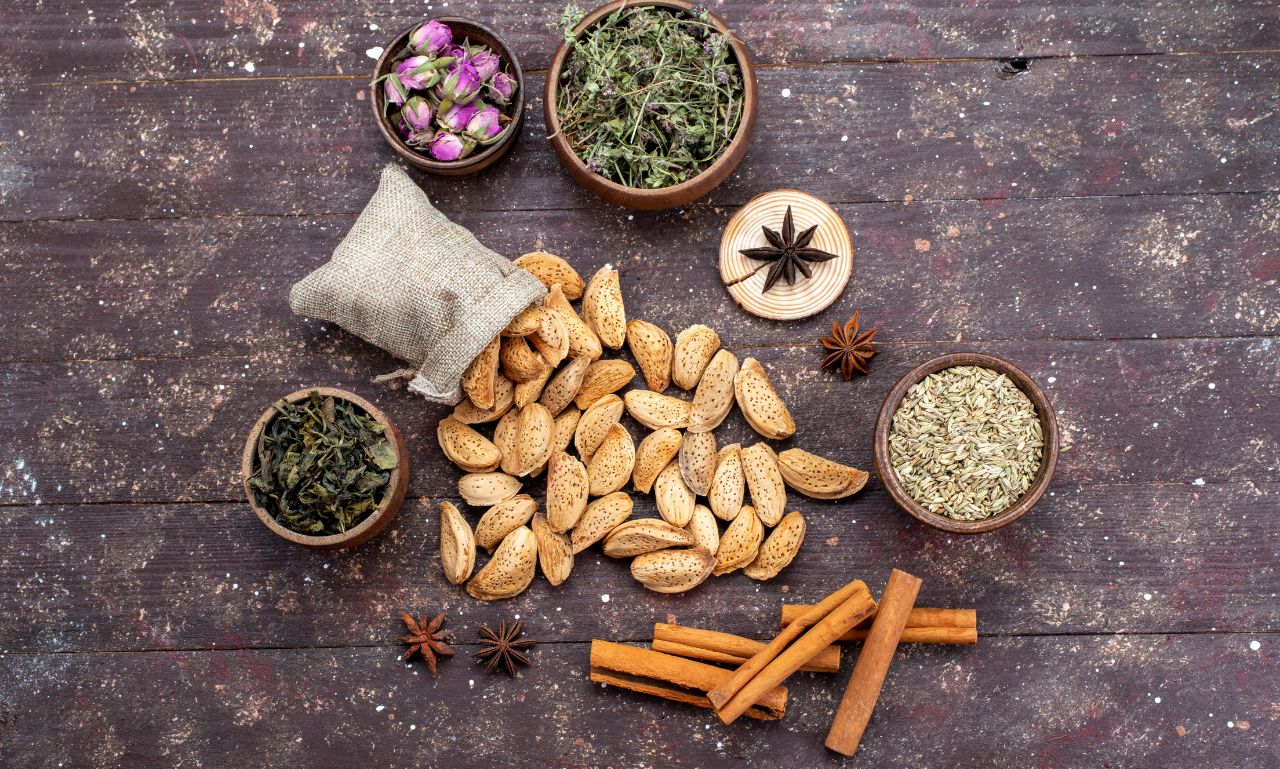Foenegriek, more commonly known in English as fenugreek, is a small but mighty herb that has stood the test of time. Cultivated for thousands of years across the Mediterranean, Middle East, and South Asia, it has been cherished for its distinct flavor and remarkable health benefits. From being a staple in spice racks to a trusted ingredient in traditional remedies, foenegriek has earned its place in kitchens and herbal medicine cabinets worldwide.
The plant belongs to the legume family and produces small, hard, golden-brown seeds with a slightly bitter yet nutty taste. These seeds, along with the tender leaves, are packed with nutrients that make them valuable for both culinary and therapeutic purposes. Today, foenegriek is a star ingredient in everything from curries and herbal teas to nutritional supplements and hair care products.
Foenegriek: Nutritional Powerhouse
One of the reasons foenegriek remains relevant today is its impressive nutrient profile. These small seeds offer a potent combination of vitamins, minerals, and plant compounds, including:
-
Dietary Fiber: Supports digestion and helps maintain healthy cholesterol levels.
-
Plant-Based Protein: Ideal for vegetarian and vegan diets.
-
Iron: Essential for red blood cell production and energy.
-
Magnesium: A mineral crucial for muscle, nerve, and bone health.
-
Vitamin B6: Supports brain health and metabolism.
-
Saponins and Alkaloids: Bioactive compounds linked to blood sugar control and anti-inflammatory effects.
Because of these nutrients, foenegriek is more than just a flavoring agent — it is a functional food with tangible health benefits.
Foenegriek: Health Benefits Backed by Tradition and Research
1. Supporting Digestive Health
Foenegriek has long been used as a natural remedy for digestive issues. Its soluble fiber helps regulate bowel movements and can relieve mild constipation. Traditional practices often involve soaking the seeds overnight and consuming them to soothe stomach discomfort and aid digestion.
2. Blood Sugar Regulation
Scientific research suggests that foenegriek may help support balanced blood sugar levels, particularly for those with insulin resistance. The fiber content slows carbohydrate absorption, while certain amino acids may improve insulin activity.
3. Enhancing Lactation
Foenegriek is a well-known galactagogue, meaning it can promote breast milk production in nursing mothers. Many women incorporate foenegriek tea or supplements during postpartum recovery to support feeding.
4. Anti-Inflammatory and Antioxidant Properties
Thanks to its rich antioxidant content, foenegriek can help combat oxidative stress and reduce inflammation. This makes it a potential ally in supporting overall immune function and joint health.
5. Appetite Control and Weight Support
The high fiber content can promote feelings of fullness, which may help with portion control and healthy weight management. Some studies suggest that foenegriek seed extract may also reduce cravings for high-fat foods.
Foenegriek: Culinary Applications
Foenegriek is a true kitchen multitasker, used in cuisines across the globe.
-
In Indian Cooking: It is a key ingredient in spice blends like curry powder and masala. Foenegriek seeds are often dry-roasted to enhance their nutty aroma before being added to lentil dishes, vegetable curries, and pickles.
-
In Middle Eastern Dishes: The herb flavors breads, dips, and sauces, adding a subtle bitterness that balances rich, savory flavors.
-
In African Cuisine: Ground seeds are combined with other spices to enrich stews and slow-cooked meals.
-
Leaf Use: Fresh or dried leaves, known as “methi,” have a gentler flavor and are used in soups, flatbreads, and vegetable sautés.
The adaptability of foenegriek in both sweet and savory dishes makes it an indispensable pantry staple.
Foenegriek: How to Incorporate It into Your Routine
Whether you are a foodie, a wellness enthusiast, or both, foenegriek is easy to add to daily life:
-
Cooking Spice: Lightly toast seeds before grinding to mellow bitterness and release aroma.
-
Herbal Tea: Soak seeds overnight, then boil them to make a soothing tea for digestion.
-
Smoothie Add-In: Add powdered foenegriek for a nutritional boost.
-
Topical Paste: Mix powdered seeds with warm water or oil to create a hair mask that may strengthen strands and promote scalp health.
Foenegriek: Precautions and Considerations
While foenegriek is generally safe in culinary amounts, there are some important considerations:
-
Pregnancy: High doses should be avoided as they may stimulate uterine contractions.
-
Allergies: Those allergic to peanuts, chickpeas, or other legumes should exercise caution.
-
Medication Interactions: Foene-griek can influence blood sugar and blood clotting, so individuals on diabetes or anticoagulant medications should consult a doctor before supplementation.
Foenegriek: Rising Popularity in Modern Wellness
In recent years, foenegriek has seen a resurgence in popularity thanks to the global shift toward plant-based and natural wellness products. Health stores and online marketplaces offer foene-griek in capsule, powder, and extract form, appealing to those seeking natural solutions for digestion, lactation, and metabolic health.
The herb is also making waves in the beauty industry. Foene-griek extracts are included in hair oils and shampoos for their potential to nourish hair and reduce shedding. Skincare brands are experimenting with foenegriek-infused products for its antioxidant properties.
Foenegriek: Sustainable Farming and Ethical Sourcing
Foenegriek is a relatively low-maintenance crop, thriving in semi-arid regions with modest water needs. It is often cultivated in rotation with other crops, helping maintain soil fertility.
Ethical sourcing matters, as much of the world’s foenegriek comes from small-scale farmers in India, Egypt, and Ethiopia. Choosing organic and fair-trade foene-griek supports both environmental sustainability and the livelihoods of these farming communities.
Foenegriek: Buying, Storing, and Quality Tips
When buying foenegriek, freshness is essential for both flavor and potency:
-
Seeds: Choose whole seeds that are uniform in color and free from debris.
-
Powder: Buy in small amounts since ground foene-griek loses flavor quickly.
-
Storage: Keep seeds or powder in airtight containers, away from direct sunlight, heat, and moisture. Properly stored seeds can retain quality for up to a year.
Foenegriek in Cultural and Historical Context
Foenegriek’s story stretches back thousands of years. Ancient Egyptians used it in embalming rituals and herbal remedies. Greek and Roman physicians valued it for its digestive and anti-inflammatory effects. In Ayurveda, it is believed to balance internal heat and support reproductive health. Traditional Chinese medicine also prescribes foene-griek for kidney health and to promote warmth in the body.
These diverse cultural uses highlight foenegriek’s universal appeal and enduring role in wellness traditions.
Future Outlook for Foenegriek
The future for foenegriek looks promising. Ongoing research is uncovering new health applications, from cardiovascular support to hormonal balance. As interest in herbal nutrition and sustainable agriculture grows, foenegriek is likely to become even more popular among consumers and health professionals alike.
Innovation in food technology may also expand its use in plant-based meat alternatives and functional foods, ensuring foene-griek remains both a traditional favorite and a modern superfood.
Conclusion
Foenegriek is a remarkable herb that bridges the gap between tradition and modern wellness. Its versatility in the kitchen, combined with its scientifically supported health benefits, makes it a valuable addition to any lifestyle. Whether you enjoy it as a spice, a tea, or a supplement, foene-griek delivers flavor, nutrition, and a heritage of holistic health.
With sustainable farming practices and growing awareness of its benefits, foene-griek is poised to remain a cherished herb for generations to come. Adding it to your daily routine may be a small step, but it’s one with big potential for flavor and well-being.

